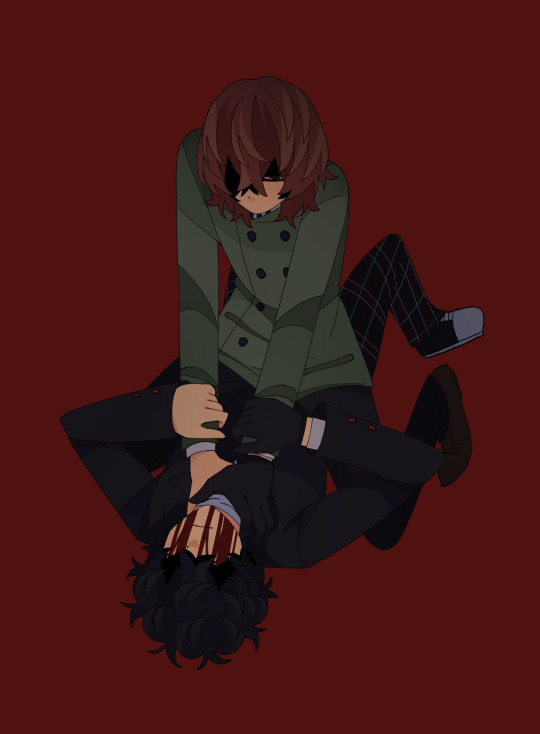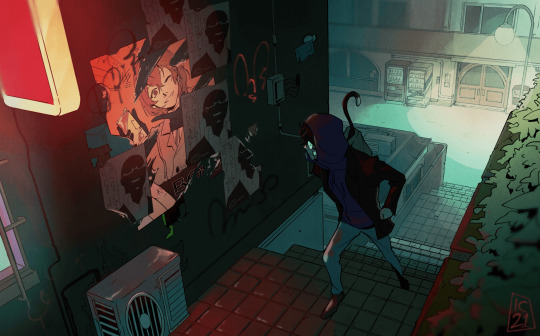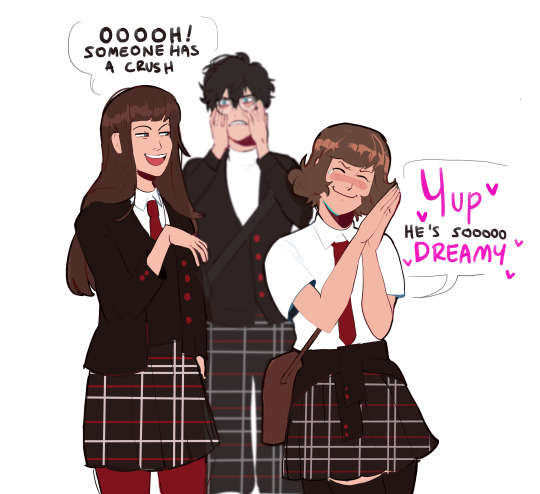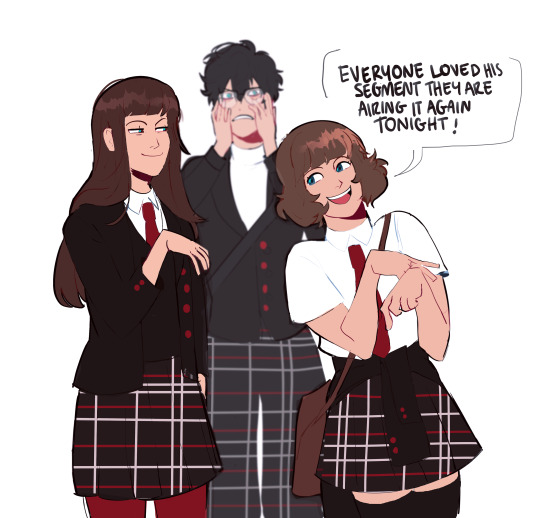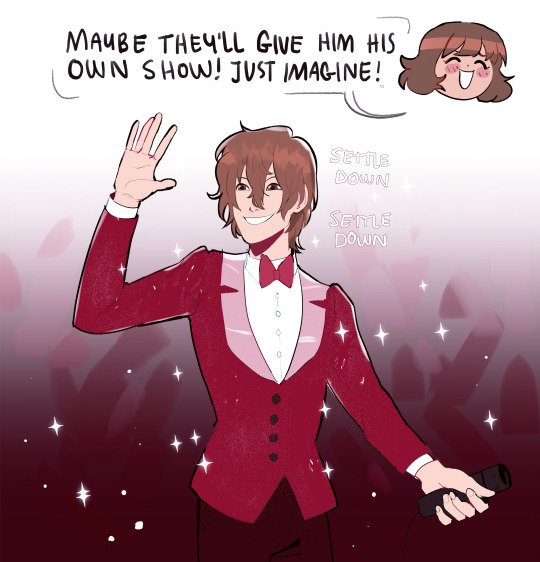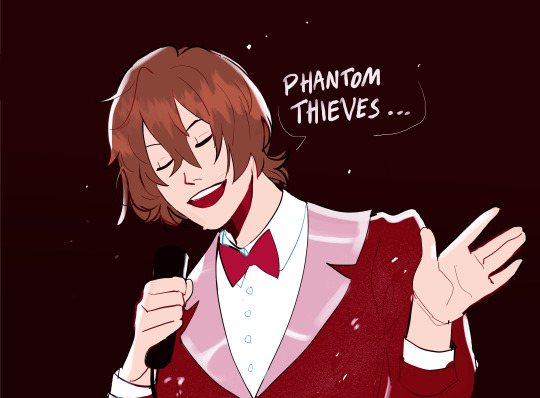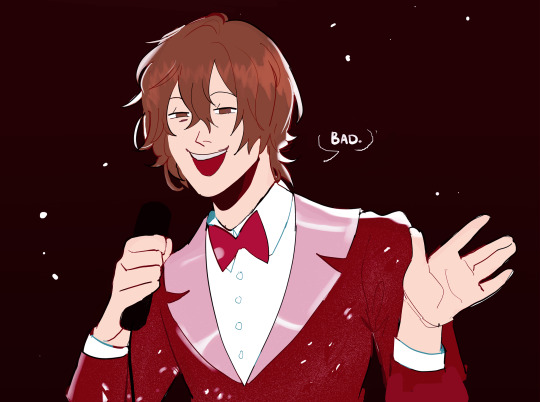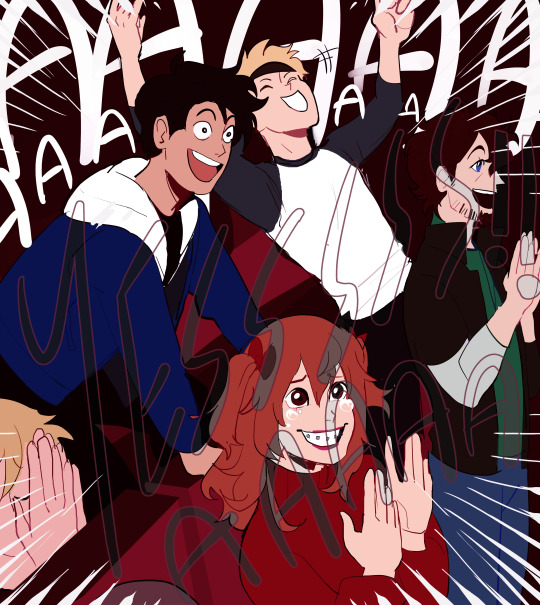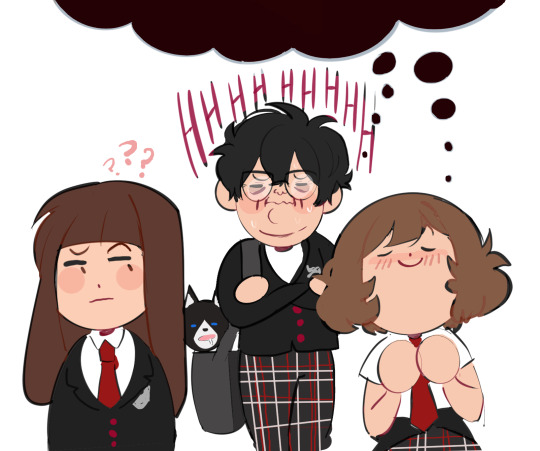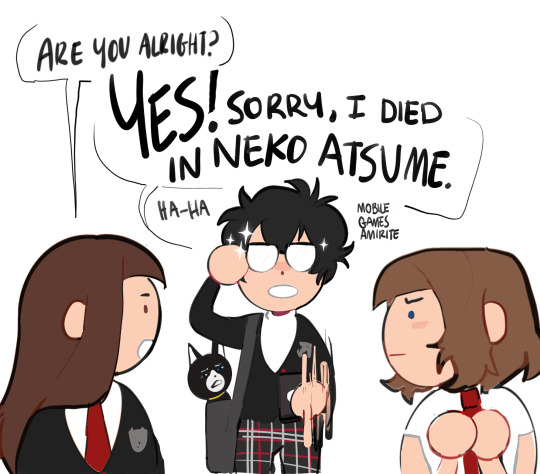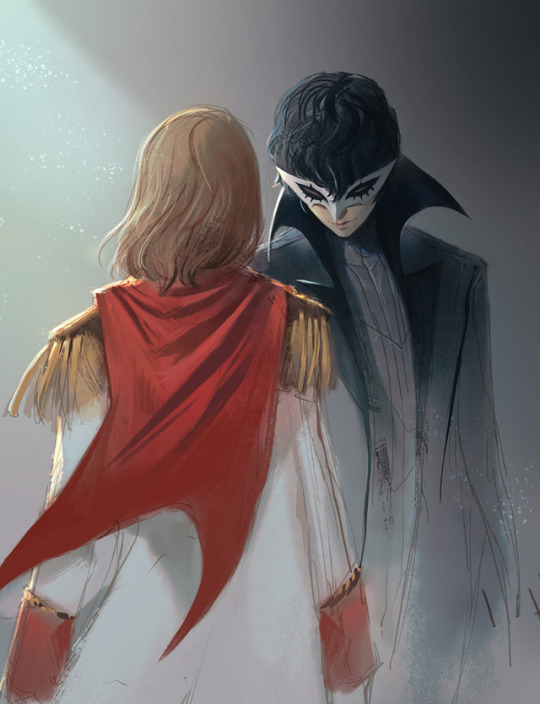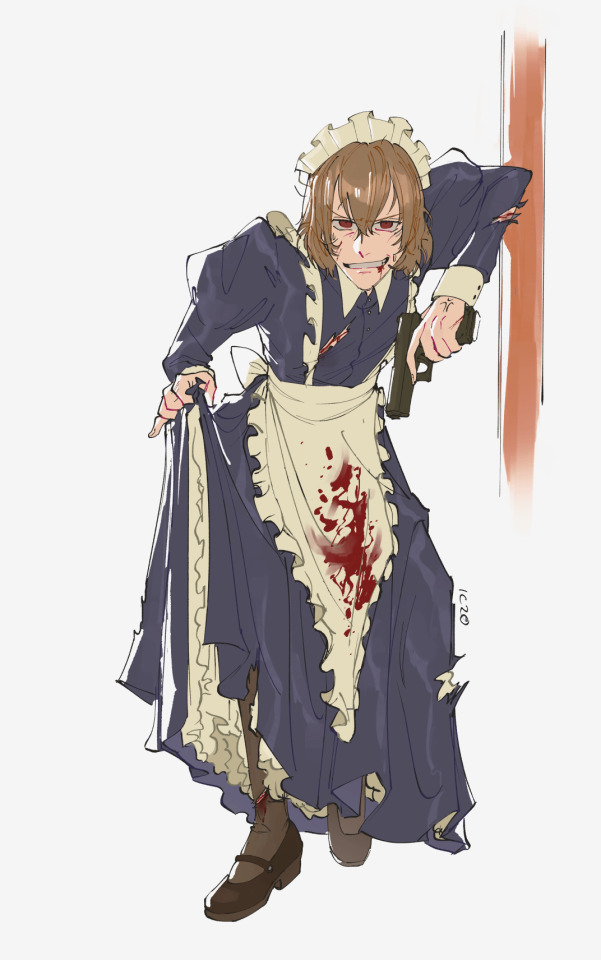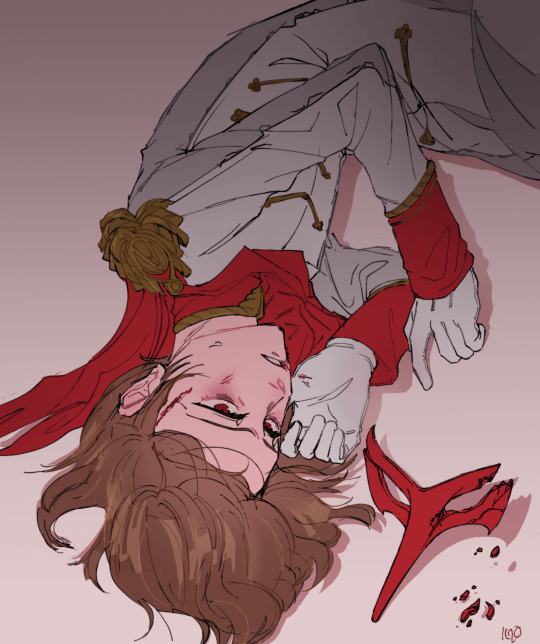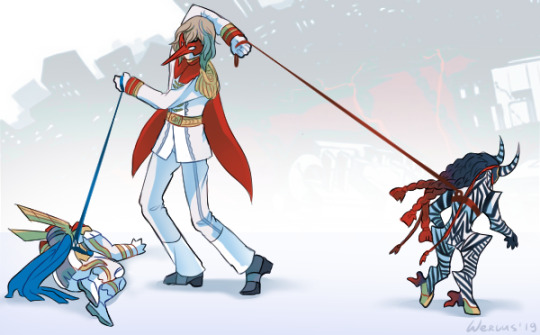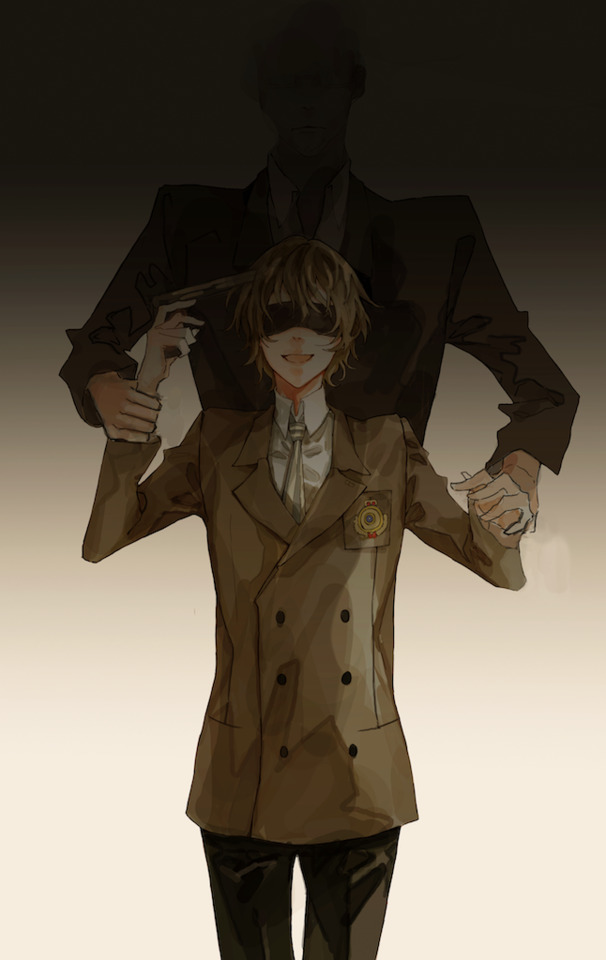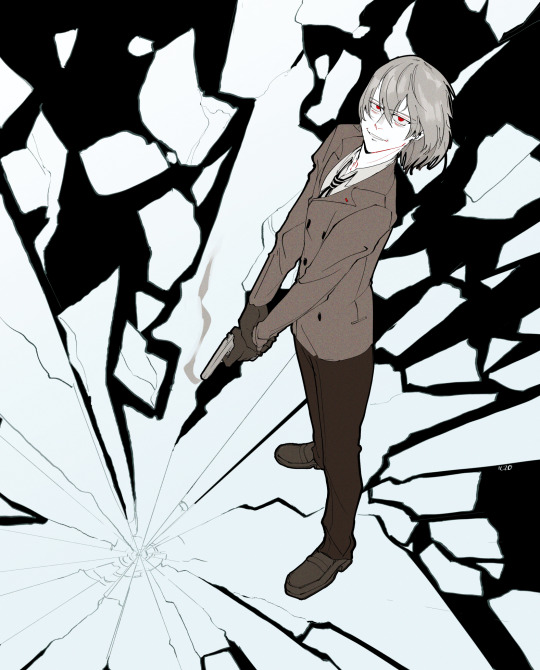•Alyssa, she/her • 17 years old • My main account is @XxVictusxX • Expect waaaay too detailed analyses or angsty fanfic • I got my profile picture from a clip art site, please let me know who the orginal artist is so I can credit them!! •
Last active 60 minutes ago
Don't wanna be here? Send us removal request.
Text
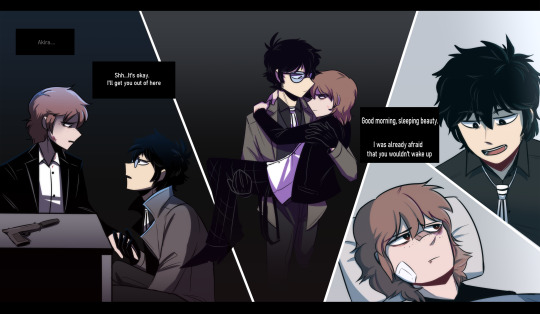
20/11 but it's swap au and no one dies (cuz i'm a birthday boy and it's my whim)
1K notes
·
View notes
Link
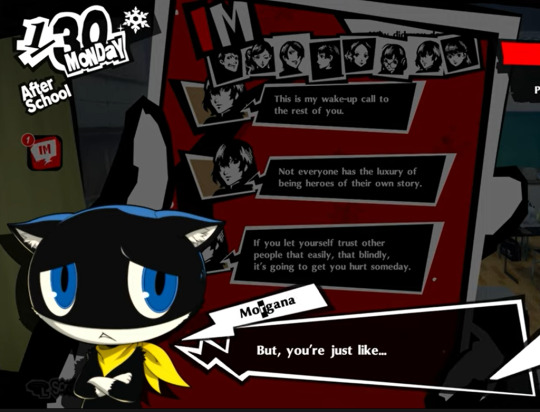
Okay so I have a LOT of thoughts regarding this request, and this is going to be my attempt to pen them all down because holy wow this is important.
Goro’s motive:
First of all: let’s get into Goro’s motive for choosing this specific incident at this specific time for this quest. It’s one that only opens up in the third semester, and Goro first takes it to Akiren privately, immediately bringing up the false assault charge before any other part of it, and he makes it clear that it’s because he knows Akiren would relate and respond to it accordingly.
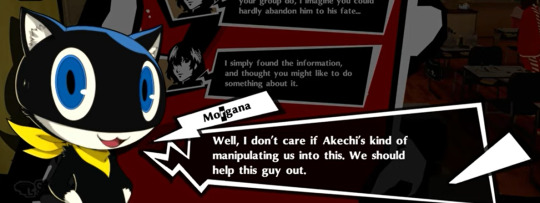
[MORGANA: Well, I don’t care if Akechi’s kind of manipulating us into this. We should help this guy out.]
This is definitely important: he’s making sure that Akiren will take the bait and take action before consulting the other Thieves, because Akiren is like that and would absolutely try to investigate it on his own first solely because of how personal it is. In the above screencap, Morgana refers to it as manipulation, which… I guess it sort of is, but it’s not hidden and he is very clearly giving Akiren a choice, albeit one that he knows he’ll take.
Goro’s also very clearly leaving this part in Akiren’s hands:
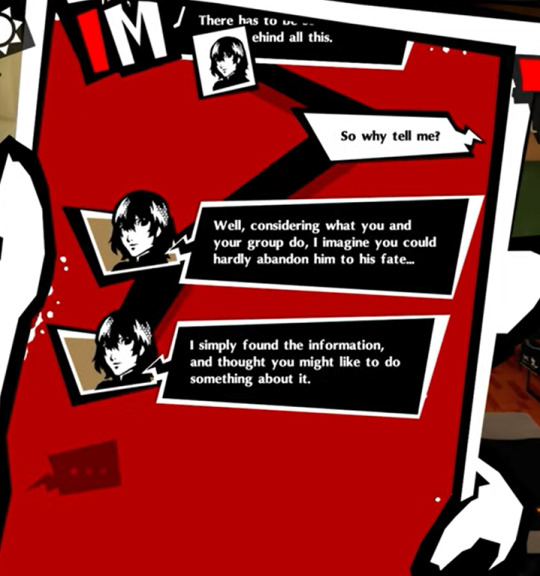
[AKECHI: Well, considering what you and your group do, I imagine you could hardly abandon him to his fate…] [AKECHI: I simply found the information, and thought you might like to do something about it.]
It’s not about we or us or it being right, nor is it an offer to make something right that he knew was similar to what Shido had done. This is expressly him saying, “I found out about this messed up thing that sounds similar to what had happened to you. Knowing you, it seems unlikely that you would let it slide. So what are you going to do about it?” He even tells Akiren where to start – he knows that Akiren is definitely going to do something about this because that’s just the kind of person he is.
Now, it’s important to not how much Goro actually knows about the situation as of the time he tells Akiren about it. Makoto brings this up in the group chat later, accusing him of having known all of it the whole time, especially with how Goro attempts to tell the Thieves that they’re being too naive (which is another can of worms that I’ll be getting to later in this post) and how this whole case seems to prove it.
With regards to Goro’s awareness, I don’t doubt that he himself wasn’t aware of just how similar his situation was to Toji Karataki, but I’m almost entirely sure that he knew there were some parallels: being turned into the puppet of a politician for a hidden motive, a relevant woman in the case having turned to suicide. These two things, at least, he was definitely aware of, as well as the names of both Toji Karataki and Hisashi Morozumi. At this point, I don’t think he had proof to establish a solid connection between Karataki and “Morozumi”, but he definitely suspected that something was amiss.
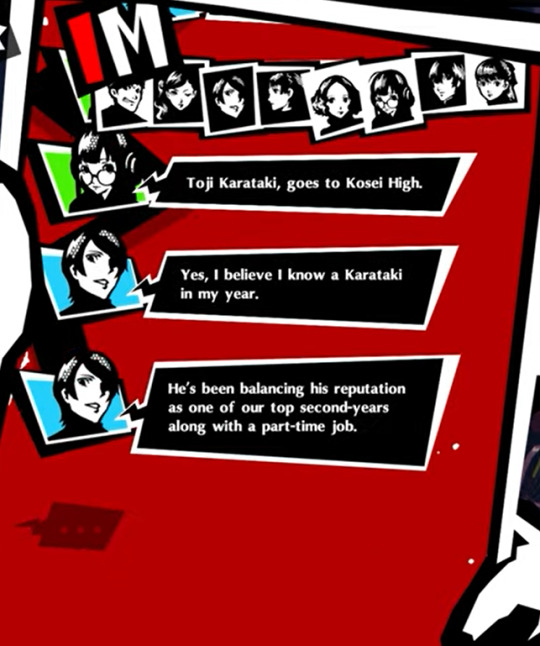
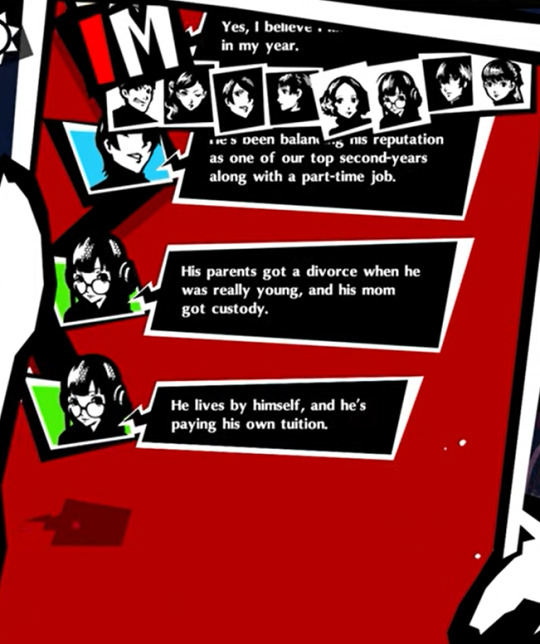
[FUTABA: Toji Karataki, goes to Kosei High.] [YUSUKE: Yes, I believe I know a Karataki in my year.] [YUSUKE: He’s been balancing his reputation as one of our second-years along with a part-time job.] [FUTABA: His parents got a divorce when he was really young, and his mom got custody.] [FUTABA: He lives by himself, and he’s paying his own tuition.]
Notably, all this information is things Futaba has found out pretty easily. Does the situation sound familiar?
I feel as though Goro used this request as a way of, essentially, projecting himself onto Karataki. While I pointed out above that it’s something he’s first expressing to Akiren, he is also very clear about the fact that he’s investigating Morozumi first and foremost. This is speculation, but given the assault charge and the “eerie similarity” in that Karataki’s mother was also driven to suicide following an unsuccessful marriage tainted by scandal, I think that Goro would have automatically pinned Morozumi to be a character not dissimilar to Shido.
So this brings forth the question to Goro: “How would Joker, and if it comes to it, the Phantom Thieves, react to a seemingly blameless individual being manipulated by such a figure and having to face charges for it?”
What I’m trying to say is that it’s an experiment on Goro’s end. As ironic as it seems, I think that it’s a way for him to gauge how the Thieves would react to him, had his own actions not personally affected them. It’s also an indirect way of him to understand how they would react to the ‘Goro Akechi’ in Maruki’s reality, who had not committed any crimes under Shido’s influence, and just what they would have made of him had there never been any connection.
(Of course, it doesn’t turn out that way as per what the group discovers in Mementos, which I’ll get to later.)
Another thing I want to mention is that, as I said, this has a personal stake for Goro in it, solely because he does bring this to Akiren’s attention with full awareness that he would undoubtedly make the connection between Karataki’s and Akechi’s situations. He does bring up that he’s already investigating the issue, and he doesn’t hesitate to mention that something’s fishy about it. Long story short, Goro is already invested in this situation with Karataki, and he’s still working on the case as a detective (which means that he was still keeping up with his detective job even post-Shido, which is interesting) to get to the truth of it.
Almost bringing to mind…
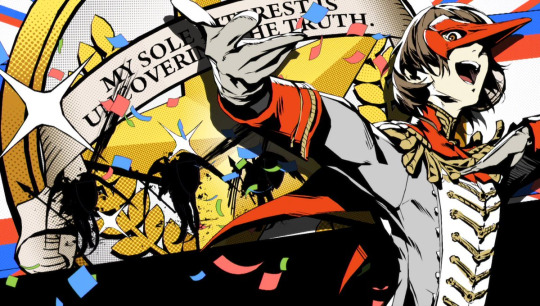
[Goro’s first All Out Attack screen: My sole interest is uncovering the truth.]
But, you know. ~Coincidence?~
To sum up my thoughts on his motive for this request: Goro saw some of himself in Toji Karataki, and decided to look into it further because it likely clicked with him immediately. Later, he brings this to Akiren’s attention, and decides to use it like a social experiment. He hasn’t anticipated that Karataki might have done something else to dispute his innocence until far later.
So, that said, let’s move on to the next thing:
Goro’s message:
Now that we’ve gotten his motive explained, Goro’s final take on the matter shows a significant disparity from it. I think that as he was investigating Karataki and Morozumi – or, as he found, Ushiwata – he discovered the connection between the two, and had already figured out that Karataki was holding something against Ushiwata. It’s particularly interesting to note that it becomes quite clear on Goro’s end when he realises that Karataki is not blameless in this situation, and his little “experiment” is forced to change a little.
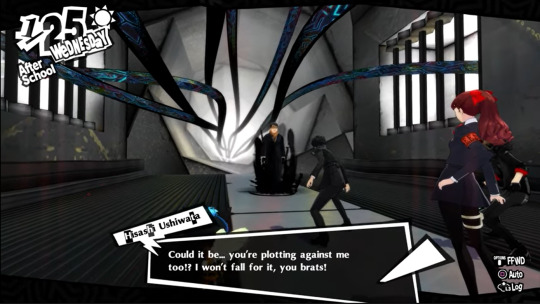
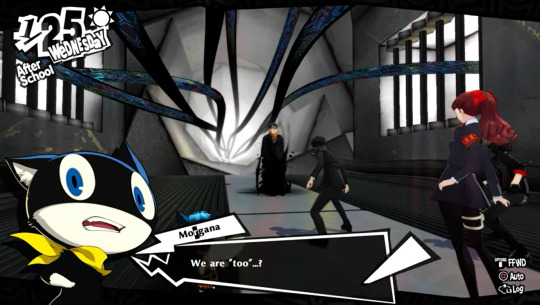
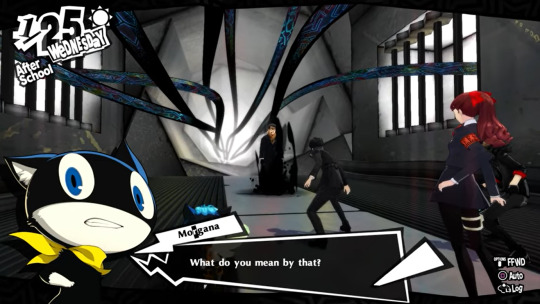
Instead of having an innocent little victim put into a similar scenario, what Goro gets is an individual who has done wrong out of both a need to survive, and from a desire for some form of retribution. It’s almost too similar to his own situation, except for the fact that both Ushiwata and Karataki’s wrongdoings were on a significantly smaller scale.
(There’s also the added fact that unlike Goro, Toki Karataki was not a child born out of wedlock, and instead his parents divorced. This gives him less of a social and political disadvantage than Goro, as there is both legal documentation of his birth, which he would have been discriminated against less for, and that it’s a heavier threat to Ushiwata’s social standing given that his scandal is not likely to go unremembered, and his divorce is public knowledge. There’s also the fact that Ushiwata was not actively harming Karataki’s life and well-being, or forcing/coercing him into anything, as far as the mission reveals. But, I digress.)
What this does prove to Goro is that there are more people who’ve been in similar situations, and that he isn’t the only one who reacted in bitterness and a desire for vengeance; for power over the person that caused their life to do downhill. It’s especially impactful because he learns that he’s not an exception to humanity in that he was the only one who would have reacted as strongly as he did and been as bitter as he was, because he sees that again in someone else.
It’s pretty clear that seeing this proof from Ushiwata’s Shadow that Karataki was holding something over him does have a noticeable effect on him. That’s his angry face there, and he sees someone that’s as similar to Shido as he’s gonna get now.
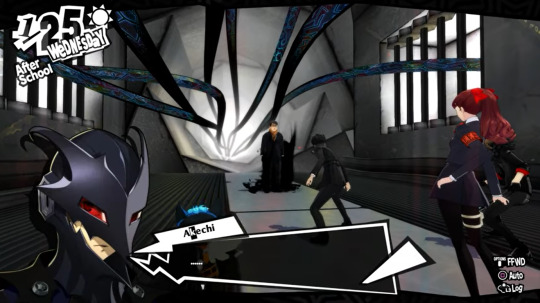
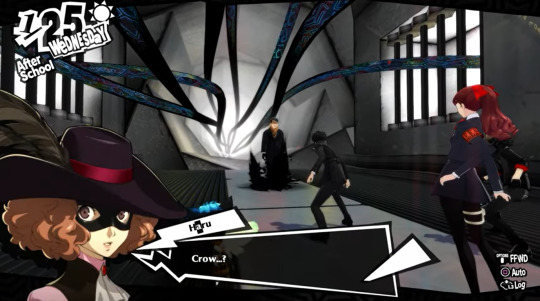
(Which should also prove to all players that it really was Goro’s circumstances that doomed him from the beginning, not a deeply ingrained characteristic that he’s a ‘vile murderer’ or whatever.)
And this is exactly what he tries to show the Thieves at the end – what he’s hinting at with his words is that anyone could be that person. By exposing the truth behind Karataki’s and Ushiwata’s actions, he’s pointing out that both parties have done wrong, and that he believes that neither of them should be fully pardoned for their actions. Instead, Karataki would be charged with the extortions that he did commit, and Ushiwata with tax fraud and abuse of power.
Which is, incidentally, identical to what Goro has said since entering Maruki’s reality – actually, since he turned himself in on Christmas Eve. He has been adamant about facing the consequences for his actions from the get-go, and his own beliefs towards Karataki’s situation serves to exemplify that. It’s not something he does out of guilt, and not something he does out of obligation, but it’s something he does because he genuinely believes it is the right thing to do. He’s pointing out that while Karataki was a victim, he was not blameless, and that there is no black-and-white definition of who can be considered a victim.
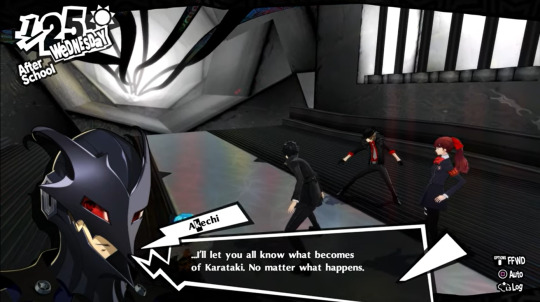
This right here shows that the point he’s going to make to the Thieves when he does is something that, once again, he has an unflinching belief in.
Personally, I think that the Thieves can afford to recognise that Goro had less agency than he lets on but here he’s pointing out exactly that: a victim is not always innocent, and bad circumstances can make people do bad things, and it’s only when they realise that someone they had seen as another poor victim had tried to do something with their situation do they realise this.
He says it quite explicitly, too.
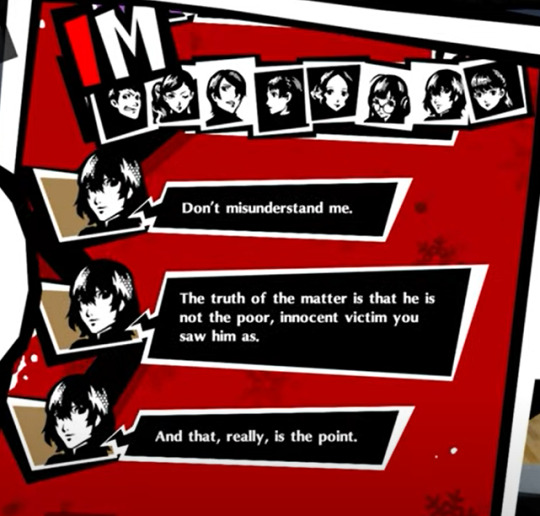
[AKECHI: Don’t misunderstand me.] [AKECHI: The truth of the matter is that he is not the poor, innocent victim you saw him as.] [AKECHI: And that, really, is the point.]
In other words, upon a little analysis, I think this mission really brings into perspective what Goro’s belief of justice really is. The topic is only touched upon once, briefly, during Sae’s Palace arc, and is never brought up again.
Which is kind of depressing, since Goro represents the justice arcana in the game. Which, upright, signifies fair judgement without bias or influence from external factors. It refers to a purely objective judging to ensure that the fairest decision is made. Reversed, it refers to the unfairness of situations, a lack of accountability for one’s actions, and a lack of self-acceptance of forgiveness.
Anyway. The last point I’m going to touch on with regard to this is that this also puts into perspective Goro’s own thoughts on why he was against changes of heart from the start, and it’s that the Thieves never once considered the consequences of their heart changes beyond “now the bad guy has to regret what they’ve done to hurt people”. Going back to what I said earlier, this mission in particular highlights the fact that until now, all of them have believed that the people they punished were unquestionably evil and that they were doing unquestionable good by “saving” their victims.
I’m going to focus on these screenshots in particular:
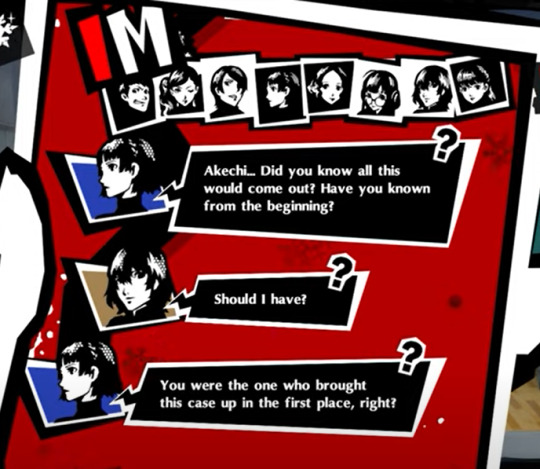
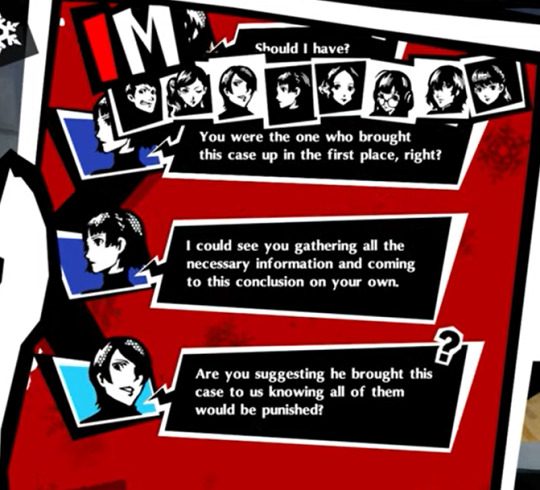
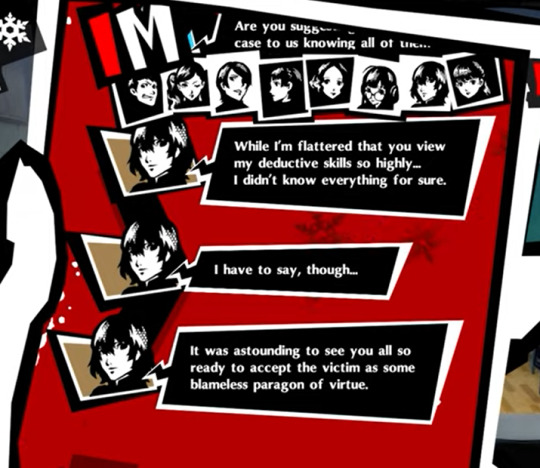
[MAKOTO: Akechi… did you know all this would come out? Have you known since the beginning?] [AKECHI: Should I have?] [MAKOTO: You were the one who brought this case up in the first place, right?] [MAKOTO: I could see you gathering all the necessary information and coming to this conclusion on your own.] [YUSUKE: Are you suggesting that he brought this case to us knowing all of them would be punished?] [AKECHI: While I’m flattered that you view my detective skills so highly… I didn’t know everything for sure.] [AKECHI: I have to say, though…] [AKECHI: It was astounding to see you all so ready to accept the victim as some blameless paragon of virtue.]
And THIS is what everyone who’s ever actually looked into Goro’s character has been saying from the start, from P5 Vanilla. There’s no such thing as a ‘perfect victim’, and those who refuse to consider Goro a victim are indubitably falling within the factually impossible belief that all victims must be, as Goro so succinctly puts it, some blameless paragon of virtue.
Makoto asks him if he’s known about the truth from the start, which Goro denies. Instead, he reverses it on the Thieves by asking them why they believe that people are always going to have to be innocent if they were hurt in the past, or why being hurt should give them a ‘free pass’ on any type of judgment for their own actions.
All of the people the Phantom Thieves thought they saved weren’t necessarily blameless, either. Of course, the Thieves themselves would have had no way of ascertaining that fact, but it’s a contingency that should be taken into account. Notably, the game never really focuses much on what happens to people or those they endangered following a change of heart, so it becomes less obvious to the Thieves and us as players, but characters like Goro and Sae, who have to deal with the aftermath of these events, are far, far more in tune with this knowledge.
And here’s the punch:
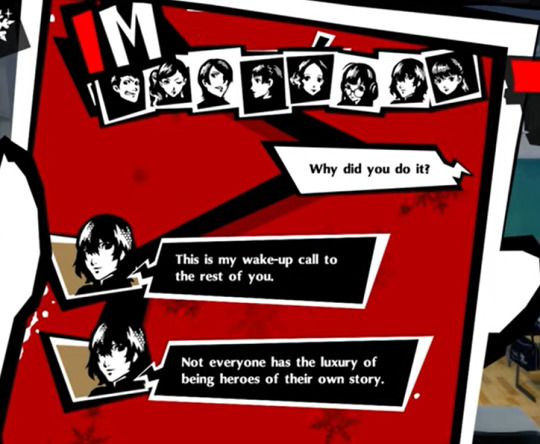
[REN: Why did you do it?] [AKECHI: This is my wake-up call to the rest of you.] [AKECHI: Not everyone has the luxury of being heroes of their own story.]
There. Bam. He answered the question, which I’ve taken a whole post to get into. It’s so positively amazing to see it stated that openly.
But another thing. This holds even more weight now that this is set in Maruki’s reality, wherein the atrocities caused by Shido and his conspiracy never happened. Goro has accepted what he’s done and is ready to bear the consequences for his actions. When he says this, there’s an added layer to it in that he’s referring to the fact that he believes he cannot be the hero of his own story. He’s come to terms with it, and he’s more than ready to take on what’s next. It’s also a way of showing Akiren specifically that this isn’t something worth staying back for.
(There’s an additional layer of sadness here, actually, when you take into account that Goro always used to want to play hero, but that in his eyes, it could never really be more than pretend.)

[MORGANA: But, you’re just like…]
Exactly, Morgana. And that, really, is the point.
1K notes
·
View notes
Text
Goro: Would you please not Ryuji this into a situation worse than it already is?
Ryuji: Hang on, did you just use my name as a verb?
103 notes
·
View notes
Text
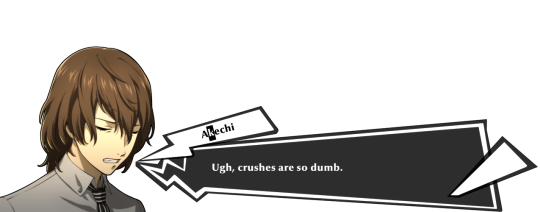
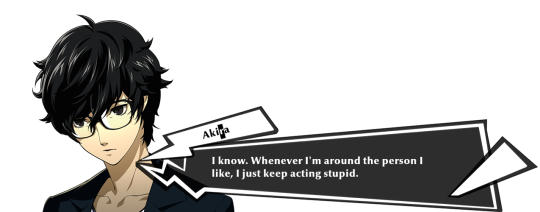
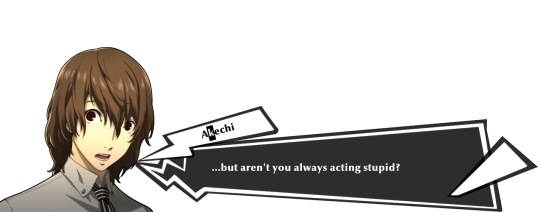
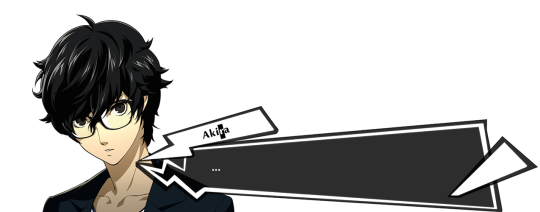
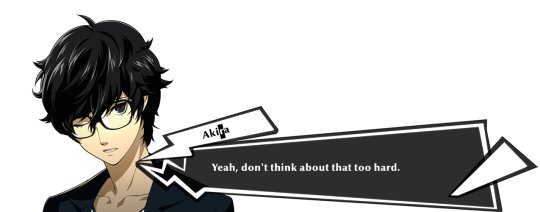
Akechi: Ugh, crushes are so dumb.
Akira: I know. Whenever I'm around the person I like, I just keep acting stupid.
Akechi: ...but aren't you always acting stupid?
Akira:
Akira: Yeah, don't think about that too hard.
525 notes
·
View notes
Text
Akechi’s dorky sweater vest appreciation post
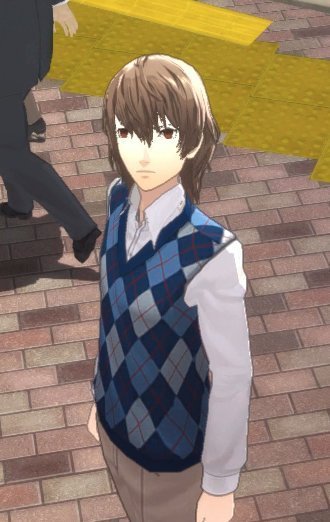
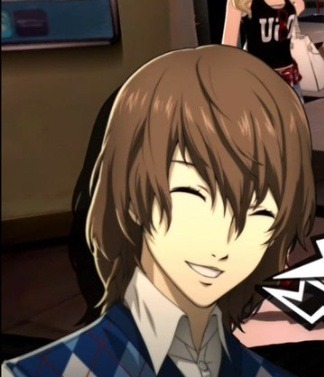
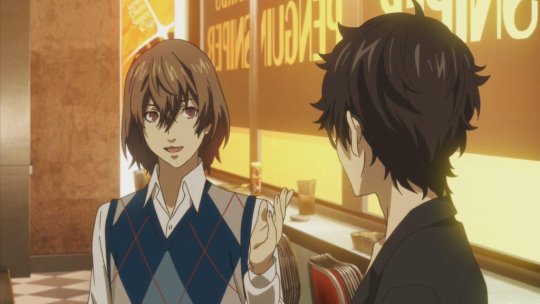

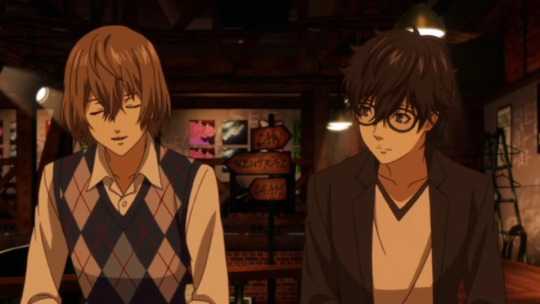
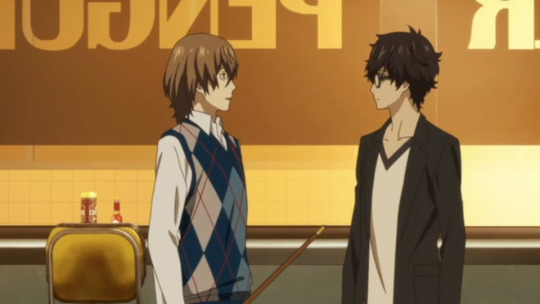
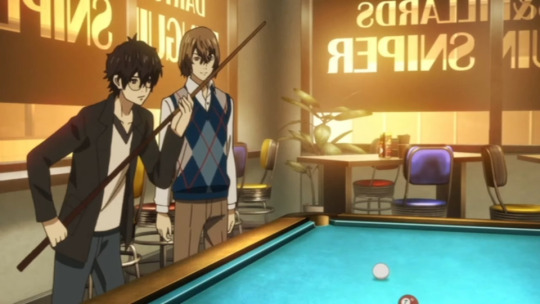
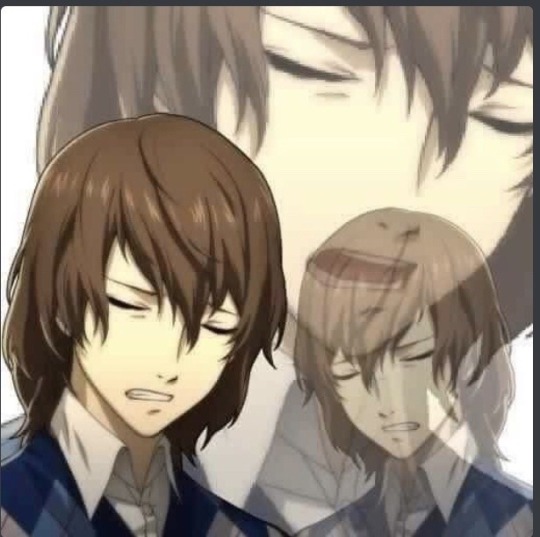
836 notes
·
View notes
Photo

I hope in the new Persona 5 the Royal has more Crow
643 notes
·
View notes
Photo
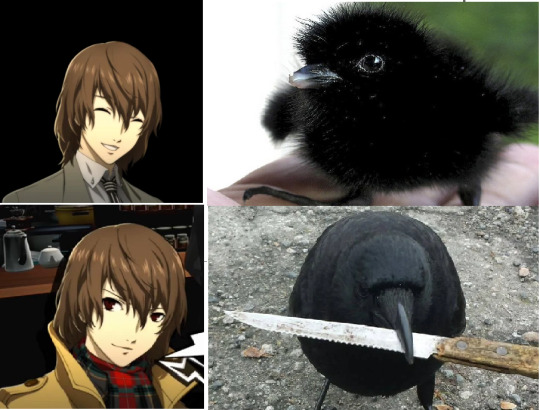
fear my ultimate Paint skills and remember it’s the thought that counts
371 notes
·
View notes
